Heart Failure and Sudden Cardiac Death
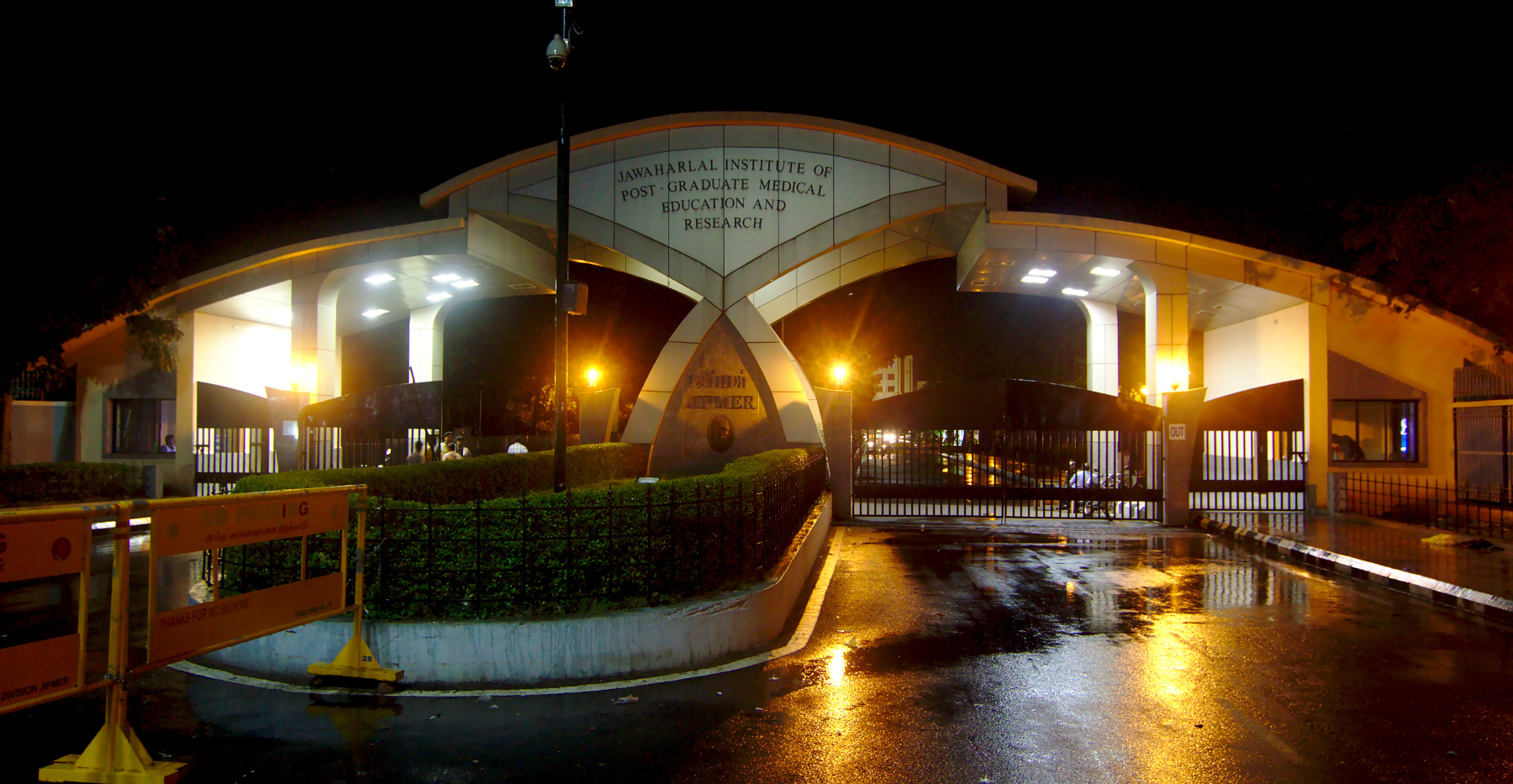
Raja Selvaraj, JIPMER
What is sudden cardiac death?
Sudden Cardiac Death
- Unexpected deaths from cardiovascular causes
- Preceded by a witnessed collapse
- Occur within 1 hour of an acute change in clinical condition
- Or < 24 hours after the person was known to be in usual state of health
SCD - Cause
- ICM
- Ventricular fibrillation
- Asystole / PEA (usually late after VF)
- Recurrent MI (40 to 50%, early post MI)
- Mechanical causes (very early post MI)
- NICM
- Severe bradycardia / Asystole
- Ventricular arrhythmias
Why is it a problem in patients with heart failure?
Survival in patients with heart failure
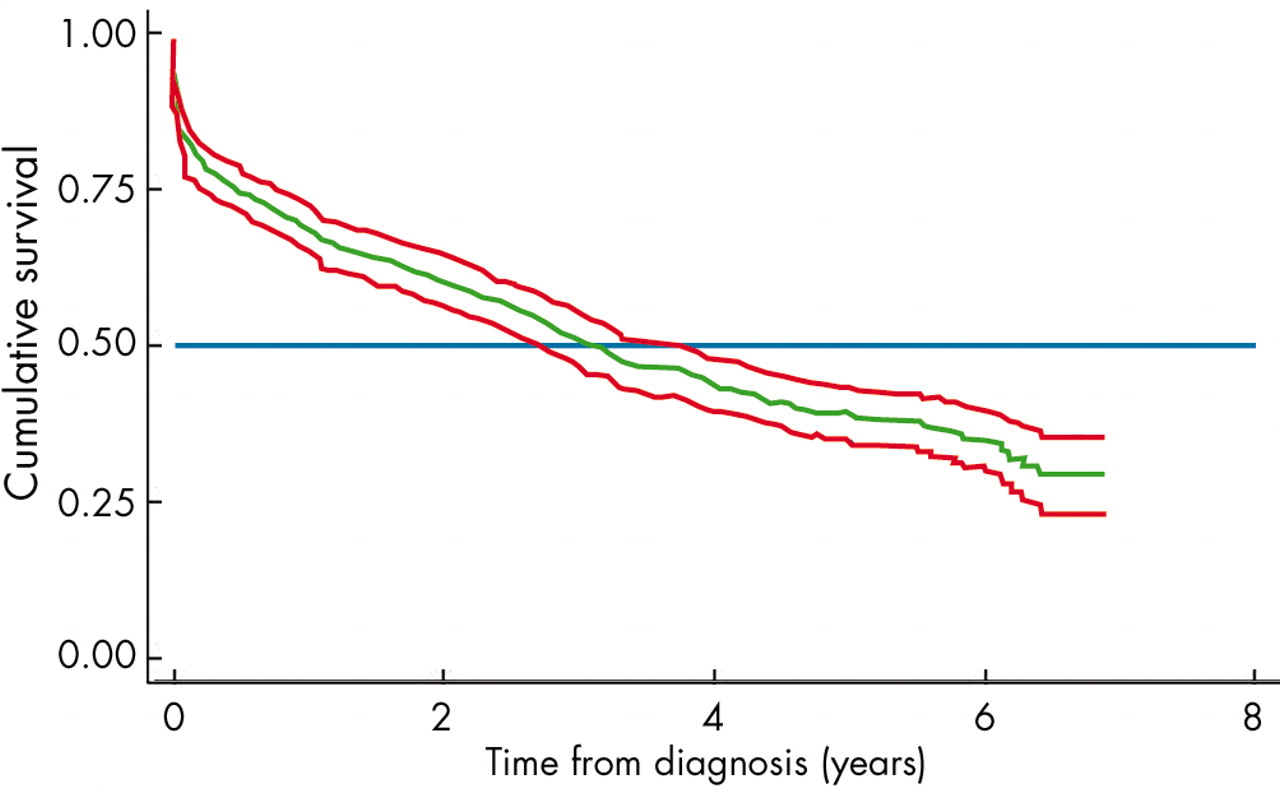
Lane RE, Cowie MR, Chow AWC. Prediction and prevention of sudden cardiac death in heart failure. Heart 2005;91:674-680.
SCD in heart failure
- CHF increases risk of SCD by 6-9 times
- Primarly in HFrEF
- About 3% per year now (20% per year previously)
SCD HeFT

Bardy et a. Amiodarone or an Implantable Cardioverter–Defibrillator for Congestive Heart Failure. N Engl J Med 2005;352:225-37.
Mode of death and severity of symptoms
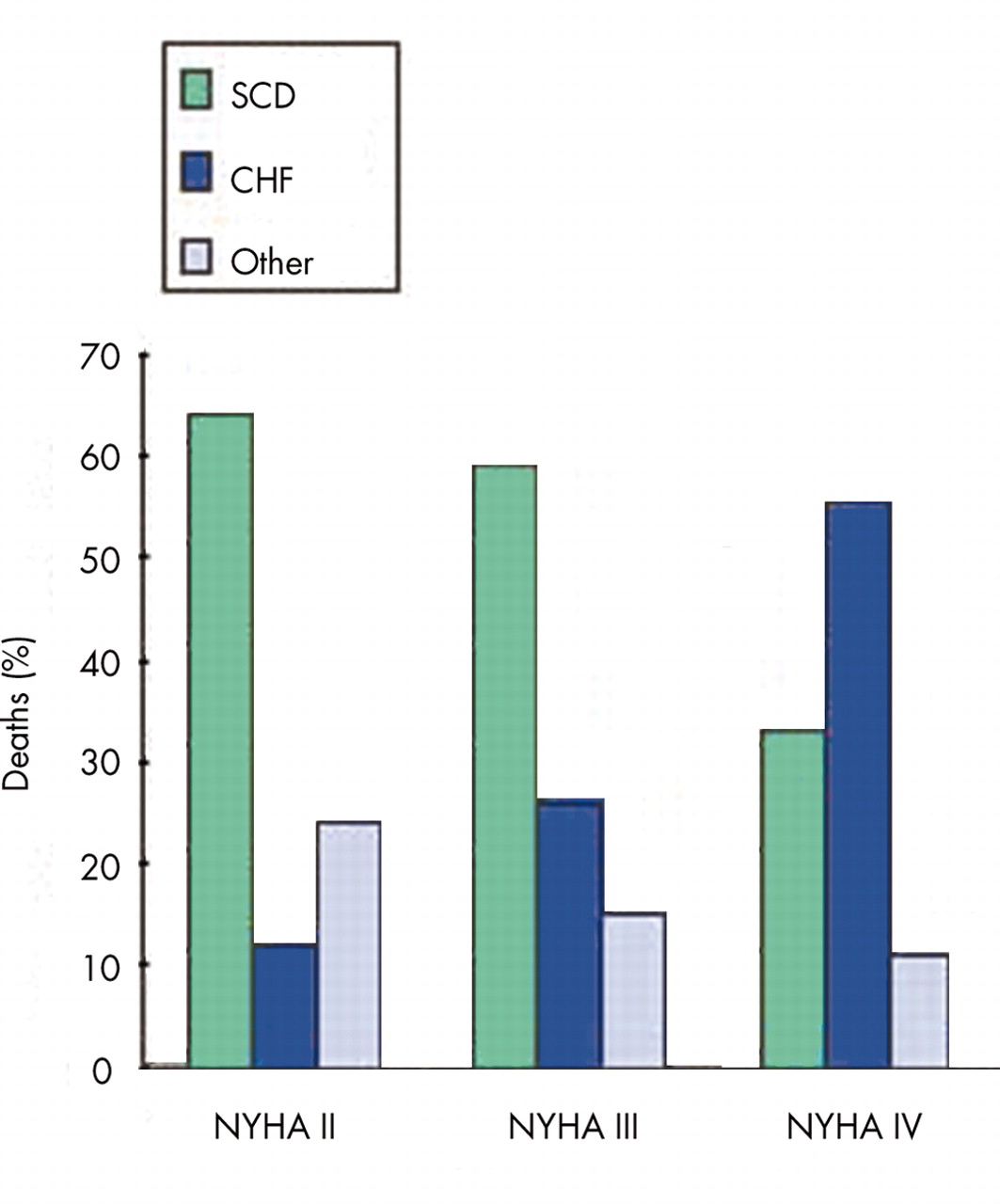
What can be done to identify and reduce risk
Identification of high risk patients
- LVEF is the one consistent marker
- Others - varying results across studies
- NSVT
- TWA
- HRV
- HRT
- EP study
- MRI
Non-pharmacologic
- Exercise
- Revascularization
Drugs
Beta blockers
- Consistently improves survival in patients with heart failure
- Around 50% reduction in SCD
- Best studied - Carvedilol, Bisoprolol and Metoprolol
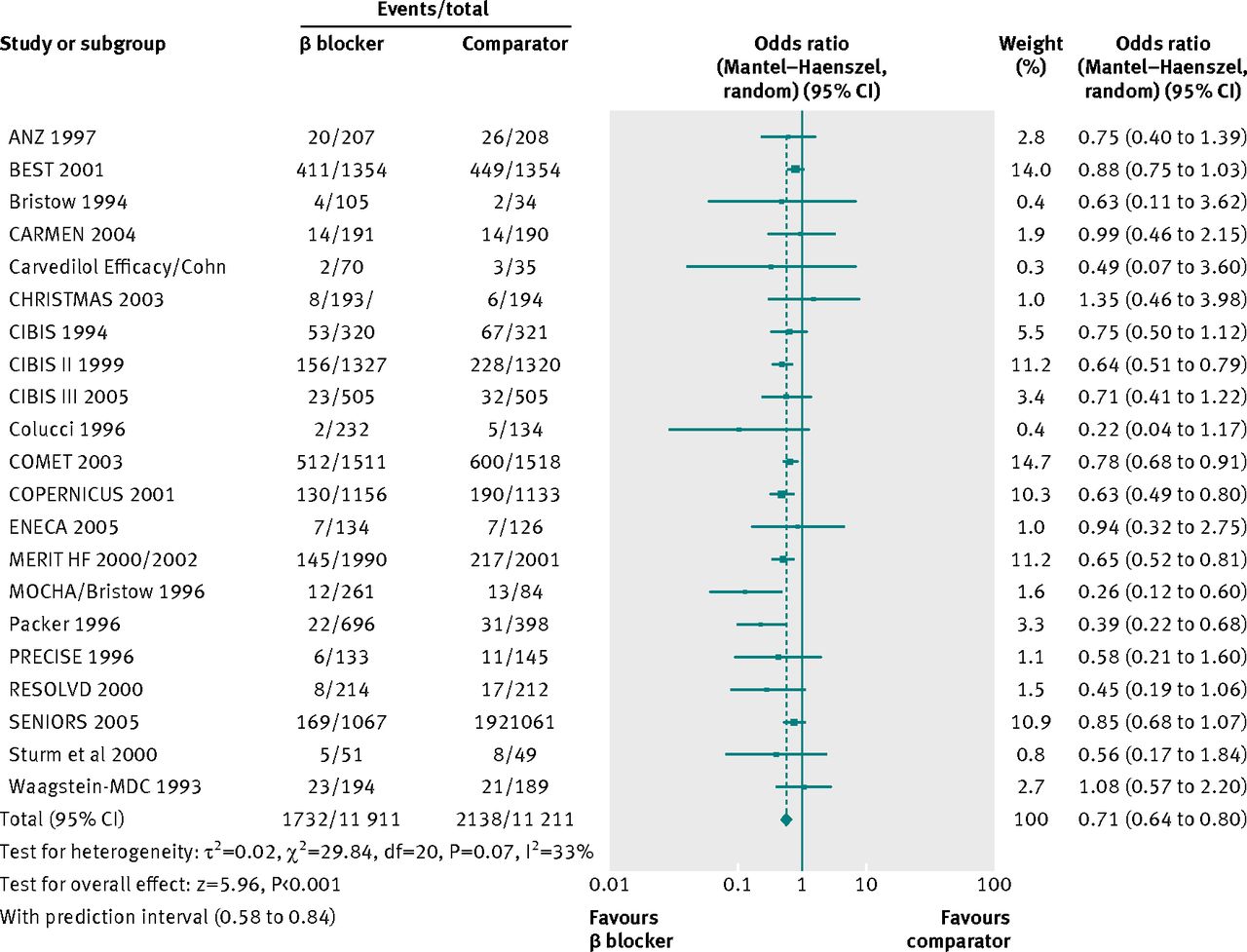
Chatterjee Saurav et al. Benefits of β blockers in patients with heart failure and reduced ejection fraction: network meta-analysis BMJ 2013; 346 :f55
ACEI - SOLVD trial
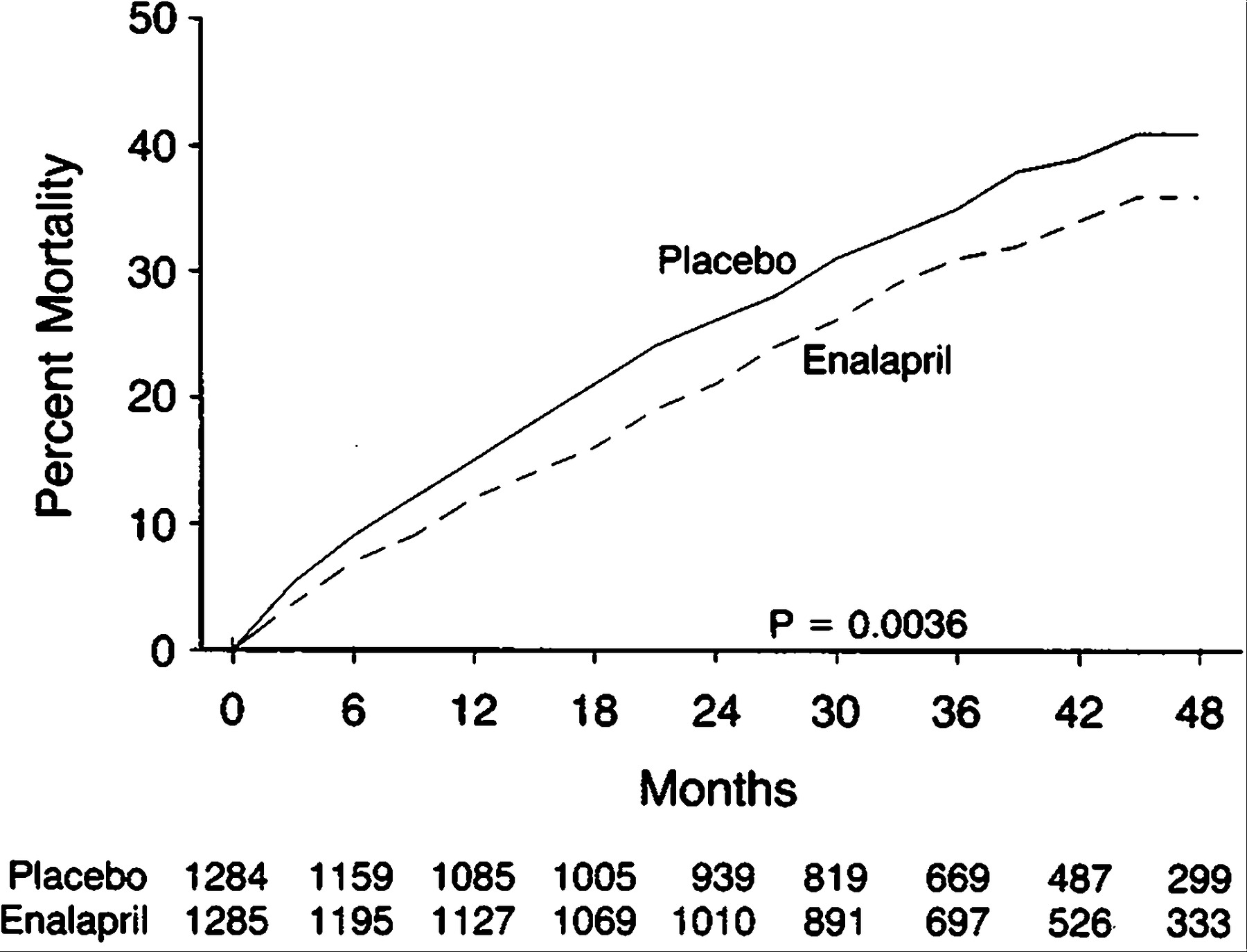
SOLVD investigators. Effect of Enalapril on Survival in Patients with Reduced Left Ventricular Ejection Fractions and Congestive Heart Failure. N Engl J Med 1991; 325:293-302
ACEI
- Reduce total mortality
- Reduce arrhythmic mortality ?
Naccarella F et al. Do ACE inhibitors or angiotensin II antagonists reduce total mortality and arrhythmic mortality? A critical review of controlled clinical trials. Curr Opin Cardiol. 2002 Jan;17(1):6-18
ARB as compared to ACEI
- No difference in mortality with ARB as compared to ACEI (1)
Pitt et al. Effect of losartan compared with captopril on mortality in patients with symptomatic heart failure: randomised trial–the Losartan Heart Failure Survival Study ELITE II. Lancet. 2000 May 6;355(9215):1582-7.
Aldosterone antagonist
- Spironolactone - 30% reduction in mortality (1)
- Eplerenone - 15% reduction in overall mortality and 21% reduction in SCD (2)
- Especially important in early mortality reduction after MI when ICD has no benefit
- Pitt B, Zannad F, Remme WJ, et al. The effect of spironolactone on morbidity and mortality in patients with severe heart failure. Randomized aldactone evaluation study investigators. N Engl J Med1999;341:709–17
- Pitt B, Remme W, Zannad F, et al. Eplerenone, a selective aldosterone blocker, in patients with left ventricular dysfunction after myocardial infarction. N Engl J Med2003;348:1309–21.
Statins
- Lower rate of arrhythmias - MADIT II post hoc analysis (1)
- No SCD reduction in prospective trials (2,3)
- Vyas AK et al. MADIT-II Research Group. Reduction in ventricular tachyarrhythmias with statins in the multicenter automatic defibrillator implantation trial (MADIT)-II. J Am Coll Cardiol 2006;47:769–73
- Kjekshus et al, CORONA Group. Rosuvastatin in older patients with systolic heart failure. N Engl J Med 2007;357:2248–61
- GISSI-HF Investigators. Effect of rosuvastatin in patients with chronic heart failure (the GISSI-HF trial): a randomised, double-blind, placebo-controlled trial. Lancet 2008;372:1231–9
Optimal medical management - Huge impact
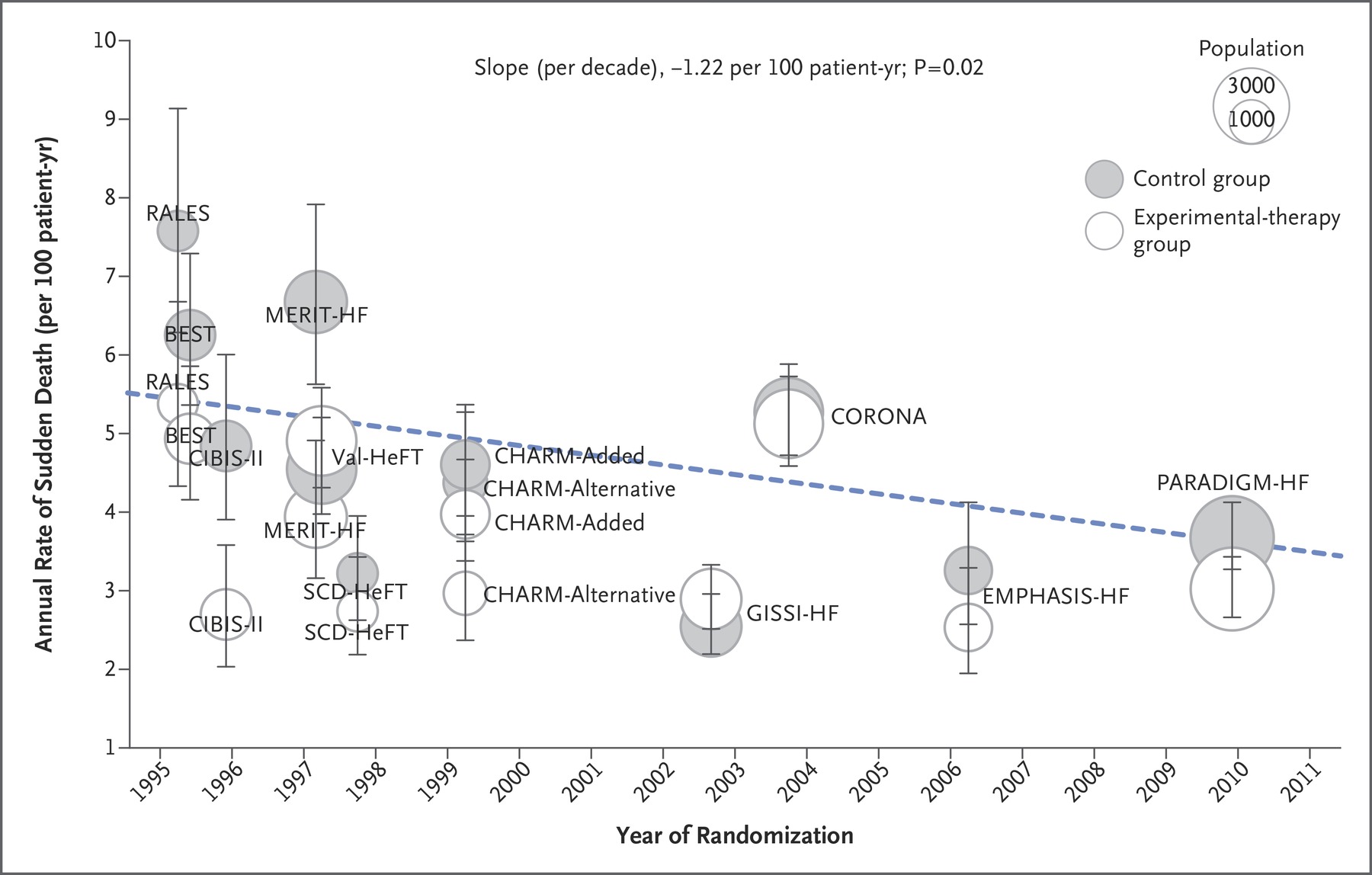
Li Shen et al. Declining Risk of Sudden Death in Heart Failure. N Engl J Med 2017; 377:41-51
Implantable devices
Implantable Cardioverter Defibrillator (ICD)
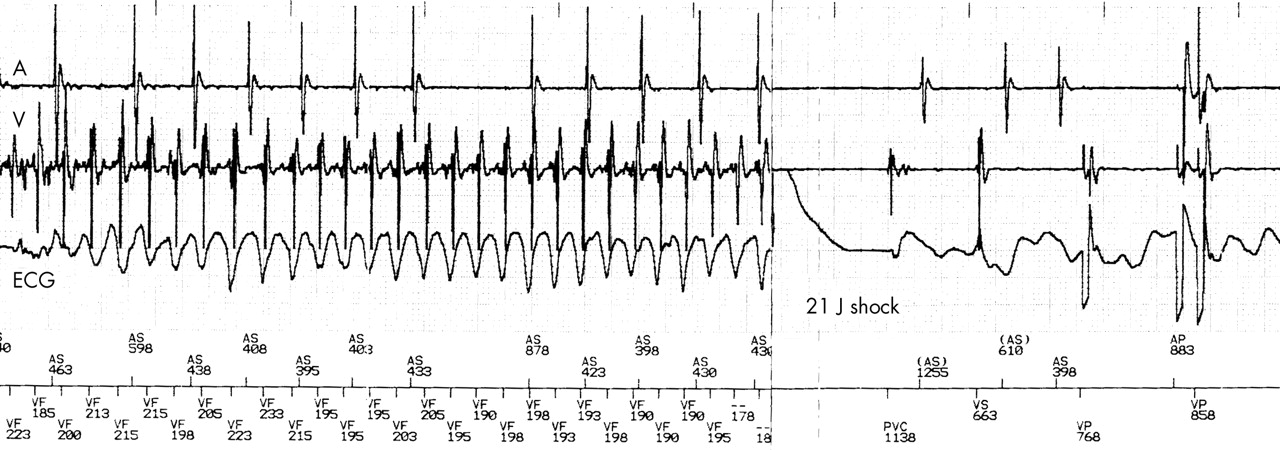
ICD - 20 to 30% reduction in deaths

Bardy et a. Amiodarone or an Implantable Cardioverter–Defibrillator for Congestive Heart Failure. N Engl J Med 2005;352:225-37.
CRT
- Reduction of all cause mortality compared to optimal medical treatment (24%)
(COMPANION) - Bristow MR, Saxon LA, Boehmer J, et al. Cardiac-resynchronization therapy with or without an implantable defibrillator in advanced chronic heart failure. N Engl J Med2004;350:2140–50
Role of Sacubitril-Valsartan
PARADIGM-HF
- Neprlisyn inhibitor with ARB
- About 4200 patients in each group
- 27 months follow up
- Significant reduction in composite endpoint (death + hospitalization for heart failure
- NNT 32 to prevent one cardiovascular death
McMurray et al. Angiotensin–Neprilysin Inhibition versus Enalapril in Heart Failure. N Engl J Med 2014; 371:993-1004
Mode of death in PARADIGM-HF
- Cardiovascular deaths
- Sudden - 44.8%
- Heart failure related - 26.5%
- Less cardiovascular deaths with ARNI
- Benefit seen in both sudden and heart failure deaths
- Reduction in sudden death even in patients with ICD
Desai et al. Effect of the angiotensin-receptor-neprilysin inhibitor LCZ696 compared with enalapril on mode of death in heart failure patients. European Heart Journal, Volume 36, Issue 30, 7 August 2015, Pages 1990–1997
ARNI and survival in CHF patients
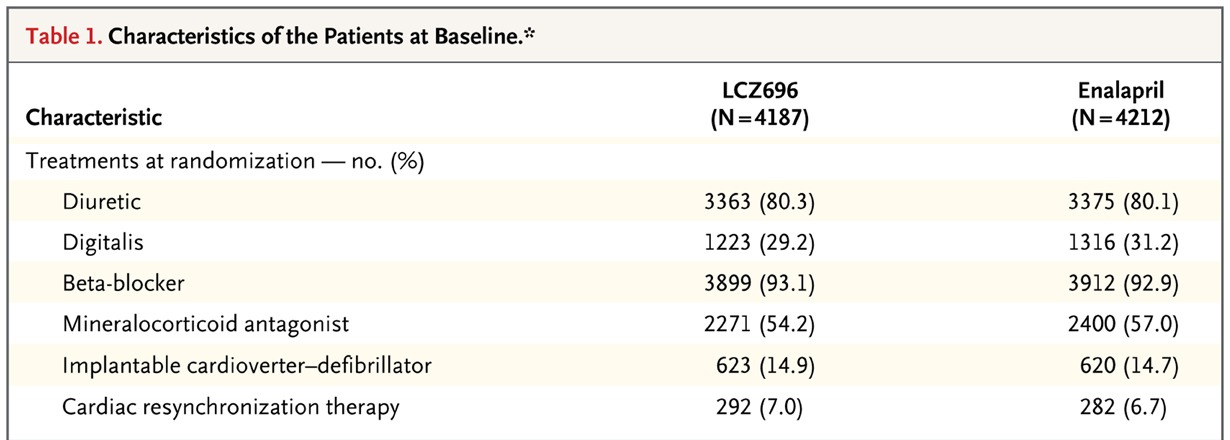
Summary
- All patients with heart failure should receive
- Beta blockers
- ACEI
- Aldosterone antagonists
- Patients at high risk of SCD should receive
- ICD
- Patients with wide QRS may require
- CRT
Should ARNI replace ACEI
- Existing evidence is compelling
- Guidelines suggests replacing ACEI (US) or using when patients still symptomatic (EUR)
- Single trial, no long term follow up
- When changing
- High dose ACEI tolerated?
- 36 hour washout
- Cost benefit ratio